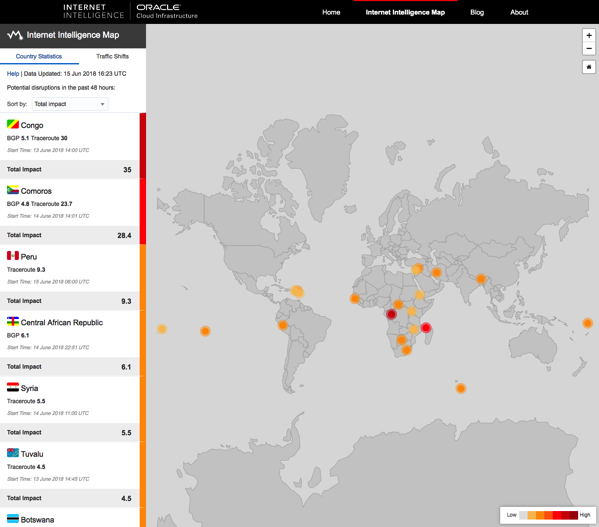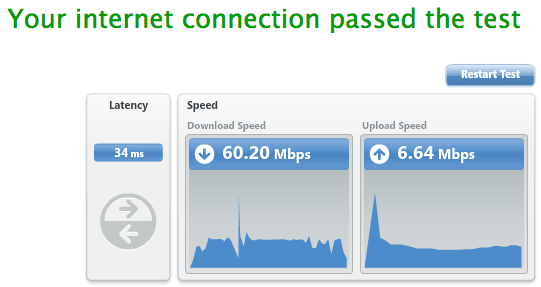General
Author:
Mark Dixon
Monday, November 22, 2010
6:51 pm
 In his provocative Scientific American article entitled, “Long Live the Web: A Call for Continued Open Standards and Neutrality,†Tim Berners-Lee concludes, “The Web is critical not merely to the digital revolution but to our continued prosperity—and even our liberty. Like democracy itself, it needs defending.â€
In his provocative Scientific American article entitled, “Long Live the Web: A Call for Continued Open Standards and Neutrality,†Tim Berners-Lee concludes, “The Web is critical not merely to the digital revolution but to our continued prosperity—and even our liberty. Like democracy itself, it needs defending.â€
I don’t agree with all Tim says in the article, but enjoyed reading the article and considering what he had to say.
Some of my favorite excerpts:
The Web as we know it, however, is being threatened in different ways. Some of its most successful inhabitants have begun to chip away at its principles. Large social-networking sites are walling off information posted by their users from the rest of the Web. Wireless Internet providers are being tempted to slow traffic to sites with which they have not made deals. Governments—totalitarian and democratic alike—are monitoring people’s online habits, endangering important human rights.
It was the subject of “threat†that caught my eye first. I know that government regulation is a threat, but how does Facebook threaten the Web?
Social-networking sites present a different kind of problem. Facebook, LinkedIn, Friendster and others typically provide value by capturing information as you enter it: your birthday, your e-mail address, your likes, and links indicating who is friends with whom and who is in which photograph. The sites assemble these bits of data into brilliant databases and reuse the information to provide value-added service—but only within their sites. Once you enter your data into one of these services, you cannot easily use them on another site. Each site is a silo, walled off from the others. Yes, your site’s pages are on the Web, but your data are not. You can access a Web page about a list of people you have created in one site, but you cannot send that list, or items from it, to another site.
So what? Why is that a problem?
Because the Web is yours. It is a public resource on which you, your business, your community and your government depend. The Web is also vital to democracy, a communications channel that makes possible a continuous worldwide conversation. The Web is now more critical to free speech than any other medium. It brings principles established in the U.S. Constitution, the British Magna Carta and other important documents into the network age: freedom from being snooped on, filtered, censored and disconnected.
I like the focus on personal freedom. I do believe that governments have difficulty oppressing their citizens if the right to communicate openly is assured – a philosophy the Web supports – if remains an open, easily accessible medium of information interchange.
Speaking of open-ness and closed-ness:
Open standards also foster serendipitous creation: someone may use them in ways no one imagined. We discover that on the Web every day.
In contrast, not using open standards creates closed worlds. Apple’s iTunes system, for example, identifies songs and videos using URIs that are open. But instead of “http:†the addresses begin with “itunes:,†which is proprietary. You can access an “itunes:†link only using Apple’s proprietary iTunes program. You can’t make a link to any information in the iTunes world—a song or information about a band. You can’t send that link to someone else to see. You are no longer on the Web. The iTunes world is centralized and walled off. You are trapped in a single store, rather than being on the open marketplace. For all the store’s wonderful features, its evolution is limited to what one company thinks up.
So what about net neutrality?
A neutral communications medium is the basis of a fair, competitive market economy, of democracy, and of science. Debate has risen again in the past year about whether government legislation is needed to protect net neutrality. It is. Although the Internet and Web generally thrive on lack of regulation, some basic values have to be legally preserved.
This is an area where I may differ a bit with Tim. It seems to me that we could have an Internet with different classes of service with different price tags, just like we have an automobile industry with different levels of luxury in the cars we buy. It certainly is a timely topic and Tim’s comments are definitely worth reading.
One area where my thought’s converge closely with Tim’s are in governments’ violation of due process of law …
Totalitarian governments aren’t the only ones violating the network rights of their citizens. …
In these cases, no due process of law protects people before they are disconnected or their sites are blocked. Given the many ways the Web is crucial to our lives and our work, disconnection is a form of deprivation of liberty. Looking back to the Magna Carta, we should perhaps now affirm: “No person or organization shall be deprived of the ability to connect to others without due process of law and the presumption of innocence.â€
All in all, a great article by a giant in our industry. Thanks, Tim, for taking the time to write it.
About the Author:
Tim Berners-Lee invented the World Wide Web. Today he is director of the international World Wide Web Consortium, based in the U.S. at the Massachusetts Institute of Technology. He is also a professor of engineering at M.I.T. and a professor of electronics and computer science at the University of Southampton in England.





 In his provocative Scientific American article entitled, “
In his provocative Scientific American article entitled, “